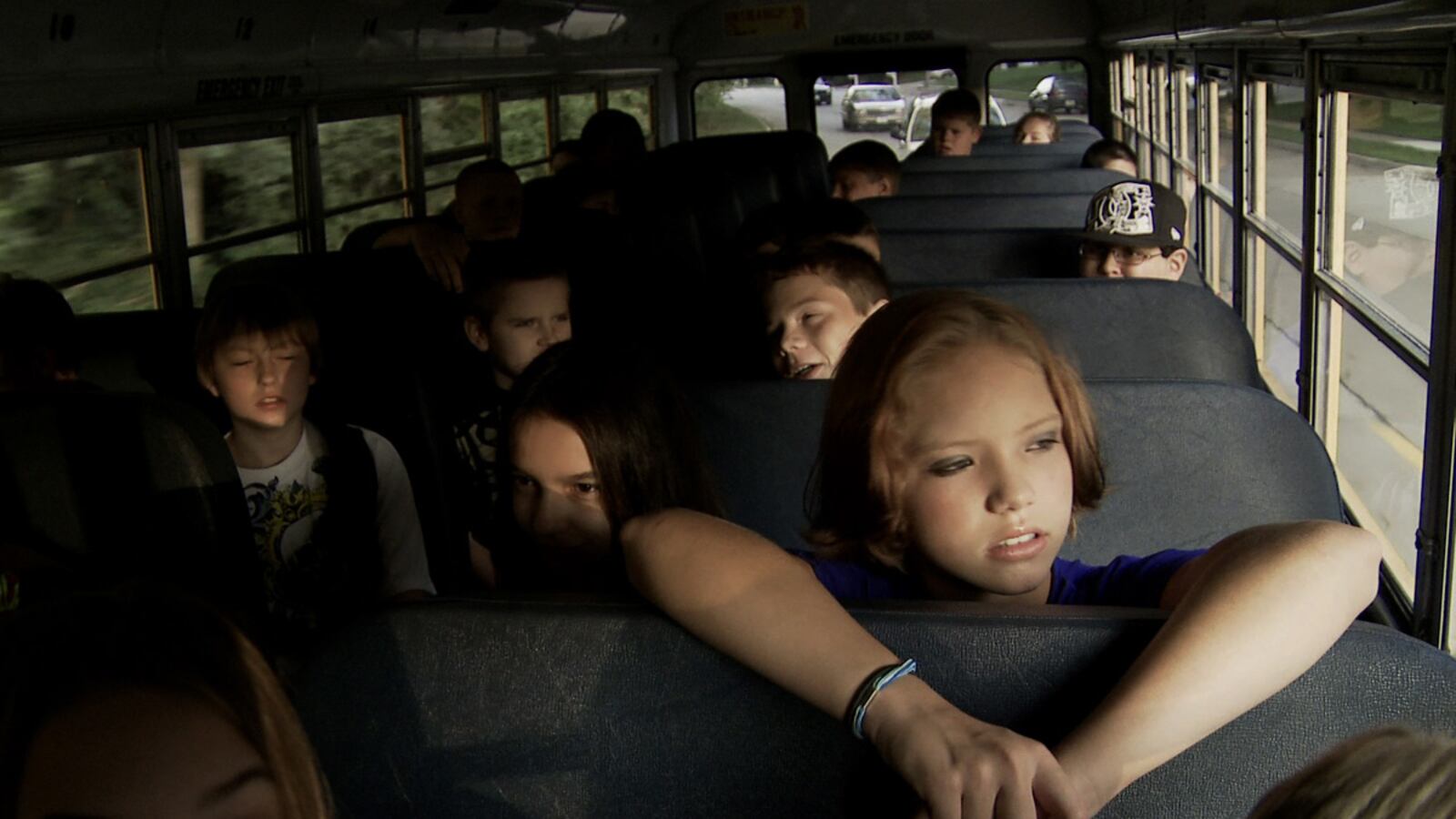While film audiences line up to see The Hunger Games and 21 Jump Street, I hope that there will be lines around the block and down the street to see another film that premieres this weekend, but I’ll admit there’s nothing entertaining about it.
The feature documentary Bully is anything but a “fun night at the movies.” It’s a disturbing, hard-hitting exposé of an issue that faces countless thousands of young people throughout this country and it’s a gut-punch. What makes Bully so powerful is that it’s a film featuring real individuals who are dealing with one of our nation’s tragic untold stories—children being beaten, denigrated, taunted, and psychologically assaulted by other kids. Equally if not more shocking is the cavalier attitude some educators and school administrators have about those kids who are mercilessly bullied under their watch—at the school where those same kids are coming to be educated, motivated, and nurtured.
Regardless of the motivation—race, religion, physical aptitudes, or some otherwise—no child in America should be subjected to harassment, humiliation, or violence while in the care of a public, or for that matter, any school.
Filmmaker Lee Hirsch took his own pain from being the victim of a bully as a child and turned his own personal horrors into a healing process by turning a harsh light on one of America’s darkest secrets.

Lee Hirsch was recently a guest on my weekend show on Fox News Channel, along with a courageous family whose son’s brutal and inexcusable treatment is chronicled in Bully. It was all I could do to conduct the interview after having seen the film and being profoundly moved by their plight.
When I viewed Bully, my first reaction was to think that every parent and grandparent in the country needs to see it, along with every child in elementary school or above.
I was stunned to learn that the MPAA had wanted to rate the film “R,” which would have restricted access to only those age 17 or above, unless accompanied by a parent.
Frankly, I wish all parents would take their kids to see the film and have a candid conversation about it afterwards, regardless of whether their child is more likely to be the victim of bullying or an instigator—and hopefully many will. But restricting access to the film from kids who need to be confronted with the ugliness of bullying is tantamount to keeping thirsty people away from water. Yes, there are moments, albeit limited, in which profanity is used, and it’s language that I would not personally use nor condone. However, the language is not gratuitous nor without redeeming value, in that it provides the shock effect to drive home the point that this is a serious issue. This is not “kids being kids.”
For those of us who grew up as “baby boomers,” bullies today are not the mischievous Eddie Haskell from Leave it to Beaver or Butch from Our Gang. This is about violence and hostility at a level that has led to suicide among numerous victims.
Bully is compelling. It’s not a pretty or pleasant story, but needs to be told. The message is not a “horizontal” message of left vs. right; liberal vs. conservative; Democrat vs. Republican. It’s a “vertical” message that says we’ll either get better, or God forbid, we won’t learn from this and it will get worse.
Surely this nation, so divided by almost everything, could unite behind the notion that the youngest among us should be treated with dignity and respect. Bully helps achieve that goal. Keeping kids from seeing it does not.






